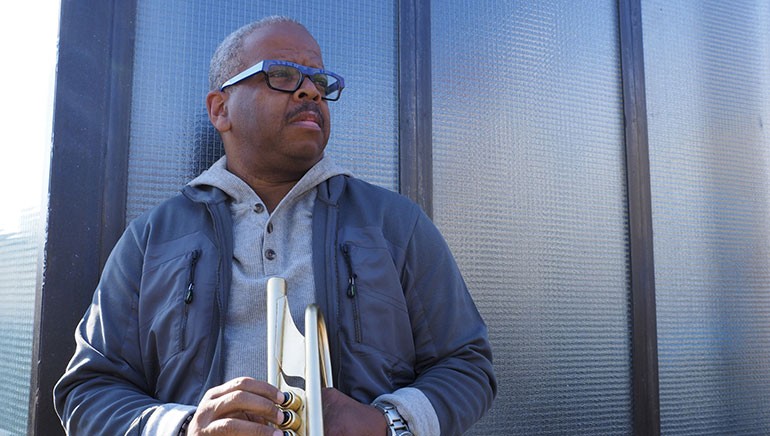BMI Composer Terence Blanchard’s Music Speaks the Truth in “BlacKkKlansman”

Terence Blanchard hit audiences hard in 2018 with another compelling score that once again helped evoke such a wide range of emotions that movie-goers could not stop feeling its impact well after they left the theater – this time in Spike Lee’s blockbuster film BlacKkKlansman. The five-time GRAMMY winner, who has been a consistent artistic force for making powerful musical statements concerning painful American tragedies, explains his motives by confessing, “You get to a certain age when you ask, ‘Who’s going to stand up and speak out for us?’ Then you look around and realize that the James Baldwins, Muhammad Alis and Dr. Kings are no longer here…and begin to understand that it falls on you. I’m not trying to say I’m here to try to correct the whole thing, I’m just trying to speak the truth.”
And speak the truth he does, both with his trumpet, which serves as a forceful and thought-provoking weapon against gun violence in his new album Live, and in such other history-making Lee films that include When the Levees Broke, about Blanchard’s hometown of New Orleans during the devastation from Hurricane Katrina, the epic Malcolm X, and the Golden Globe-nominated 25th Hour. Some of Blanchard’s other film credits include the Mike Binder-directed Black or White, the Kasi Lemmons’ films, Talk to Me and Eve’s Bayou, as well as George Lucas’ Red Tail and Tim Story’s Barbershop.
In between his busy, and inspirational, schedule, BMI asked Blanchard for a few more confessions about the machinations of his work on BlacKkKlansman and how he uses his band, E-Collective, to project his own vision of what the promise of America should be. Here’s what he had to say:
In BlacKkKlansman, you combine classic orchestral music with jazz and R&B. What was that process like and which instrumentation came first?
The process was mainly trying to find something to fit the period. Having grown up in the 70s, Jimi Hendrix was a major part of the sound of America and his rendition of “The Star Spangled Banner” was the most patriotic thing I ever heard. So the guitar was the first instrument that came to mind. With my guitarist from my band, the E-Collective, Charles Altura, I told him the idea was to not try to mimic Jimi’s style, but to be inspired and influenced by it.
How much of the film did you see before you began working on the score?
I had the entire film, even though Spike had given me the script before shooting.
What inspired the lead character, Ron’s theme?
I wanted something simple, but powerful. So it’s the reason why I used harmony comprised of fifth-intervals because that interval has a very strong and powerful sound, and moving those intervals around in harmony allowed the melodic theme to have a strong harmonic base.
What was the process for playing off that theme? How did the musical ideas come about for the individual scenes?
Basically, I tried to give Spike what he always wants which is strong, melodic content which will service storylines with no underscore. Each scene has its own character within the total story. I tried to enhance the overall storyline through each scene, which causes me to take elements of the thematic material and minimally modify them to fit each situation.
How did you weave some of the more humorous scenes into your dramatic score?
Spike’s movies have always been about the human condition. Some fictional, some historic, but the overall theme of them has always been about humanity and justice for all. So while there may be humor, there is not much need for me to overdo the humor. What I have done is to subtly shift elements from serious to slightly humorous while trying to maintain the overall character of the score.
In your latest album Live, you tackle the theme of gun violence, another extremely relevant topic. How did the process differ covering such a theme non-cinematically as opposed to writing for a film?
Music created for my band has always been me telling my own story and giving my own impressions of any topic we choose to explore. The differences are based around intent. For film, I am assisting someone else in their portrayal of a story. With the E-Collective, it’s all my own vision.
You’ve worked with director Spike Lee on so many projects. How did you develop such a strong relationship and what makes it work?
We have grown together in this business. From my early days as just a performing artist and traveling musician to the session work I’ve done. Spike, while having a very strong cinematic style, has always given me room to create, and trusts my creative musical additions that help to drive his story. He always tells me ‘O.k., you have to take us to the next level.’ That relationship has allowed both of us to grow as artists.






Community
Connect with BMI & Professional Songwriters